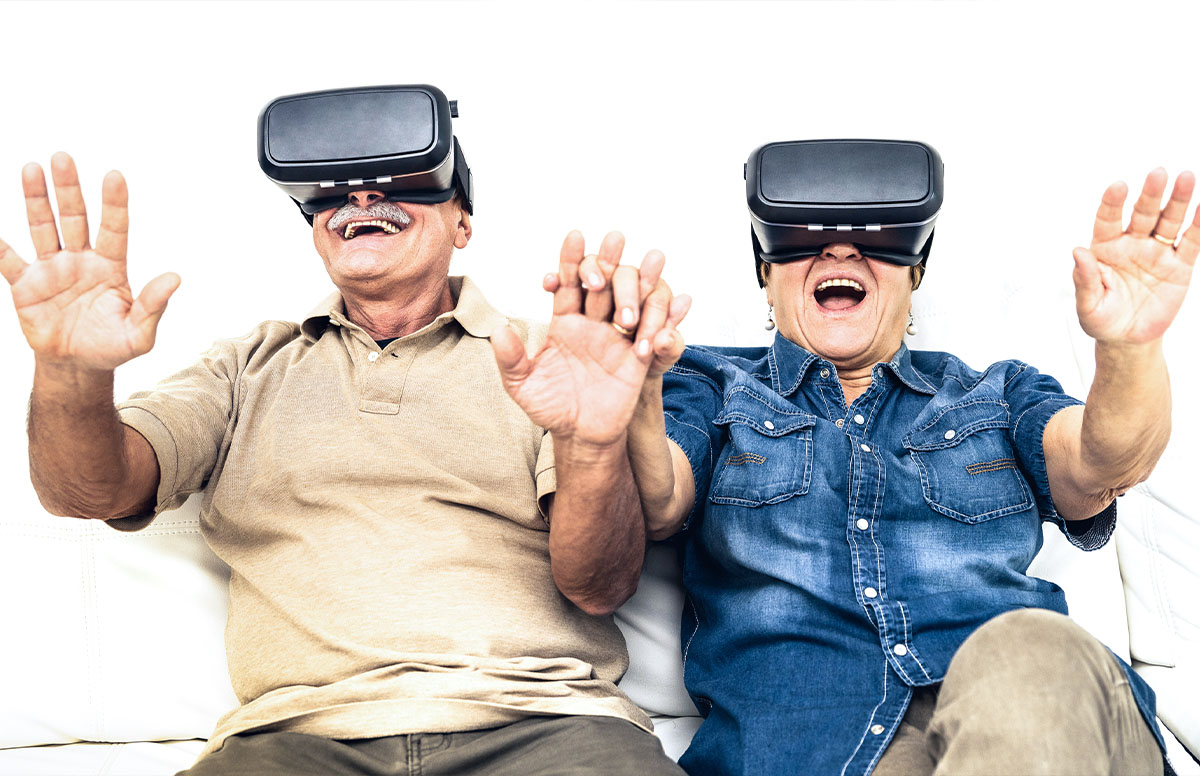Virtual reality (VR) and augmented reality (AR) technologies can help family caregivers provide better support to people living with dementia (PLWD), a new literature review has found. These technologies were found to increase empathy, caregiving skills, competence, and well-being.
“Use of Virtual Reality and Augmented Reality Technologies to Support Resilience and Skill-Building in Caregivers of Persons With Dementia: A Scoping Review” was published in Cureus.
The research illuminated an important issue, that caring for family members or friends with dementia can affect caregivers’ physical and mental health. Previous studies suggested that VR and AR technologies can support caregivers’ well-being, and the technologies are safe and generally user-friendly. This review looks at “the emerging field of VR and AR innovations that may further advance caregiver education and training,” said the report.
About the Review
The review focuses specifically on how VR and AR can support family caregivers who care for people living with dementia either at home or in a senior living community. The review looked at 112 articles, all peer-reviewed articles and grey literature in the English language published between January 2010 and October 2023.
Benefits
The review found that these technologies brought many benefits to caregivers.
- Increased Empathy. The research authors wrote that empathy is central to the principles of person-centered care, the gold standard in dementia care. The first-person experience that VR and AR applications provide can help caregivers to better understand the experience of people living with dementia.
- Improved Caregiving Skills. The technologies enabled caregivers and healthcare professionals to better understand, manage, and provide care for PLWD.
- Increased Competence. Caregivers were more confident about their care and had better relationships with the people for whom they were caring.
- Improved Psychological Well-being among Caregivers. Caregivers experienced reduced stress, depression, and loneliness.
Barriers
The review also found barriers that limited VR and AR technologies from supporting family caregivers. Caregivers who have limited experience using technology may find using VR and AR challenging. Lack of access to adequate technology equipment is another potential barrier.
In addition, people with dementia may have physical challenges, such as limited range of motion or fatigue, that make it difficult for them to use VR equipment.
Factors that Encourage Use
The review also pinpointed factors that make it easier for family caregivers to take advantage of the benefits of VR and AR support technologies.
User-friendly, engaging, and accessible technologies will facilitate use of these interventions.
Technology training and support for caregivers are essential. Guides on how to set up and use VR equipment, troubleshooting resources, and tech support groups were found to increase use of these technologies. In virtual support groups, avatars offered family caregivers anonymity to participate more fully.
For more information, read the full report.

 Shutdown Week Three: Impact of Ongoing Closure on Affordable Housing
Shutdown Week Three: Impact of Ongoing Closure on Affordable Housing


